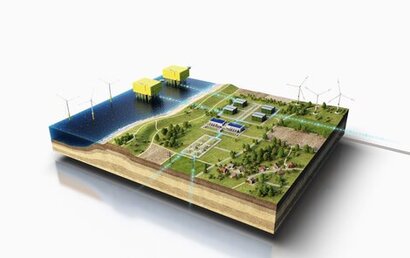
The R&D agreement marks a key initial milestone on the path to a future high voltage grid for Germany and Europe's energy transition.
“We believe GE Vernova's technology will be essential to the efficient integration of renewable energy and the future of the energy transition” said Johan Bindele, head of Grid Systems Integration at GE Vernova's Grid Solutions business. “This truly transformative and groundbreaking innovation could fundamentally change how we deliver electricity.”
HVDC is the most efficient way to transmit bulk power over long distances and is essential to integrating renewable wind and solar energy into the grid. With today's available HVDC Voltage Sourced Converter (VSC) technology, HVDC systems are point-to-point, bi-directional transmission systems that have one HVDC converter station at each end. By developing a new generation of multi-terminal HVDC technology, GE Vernova, in partnership with the four German TSOs, will create an HVDC system in which multiple terminals can connect with one another. This multi-terminal grid will enable electricity to travel where needed for a highly efficient electron highway.
The R&D contract also includes the conceptualisation, design and development of enabling technologies, specifically a new-to-market 525 kV Direct Current Circuit Breaker (DCCB) that will allow these and other TSOs to trip and isolate faults in the HVDC system. GE Vernova is currently in the development phase of the DCCB, which, when completed, is planned to become part of GE Vernova's market offering.
The initial R&D award covers an 18-month design phase through December 2025. The implementation phase is scheduled to begin in 2026. Commercial deployment is expected by 2029. The project will be led by GE Grid GmbH (Berlin) with engineering to be conducted at GE Vernova's HVDC facility in Stafford, UK.
The announcement reaffirms GE Vernova's dedication to providing innovative solutions that meet the grid's changing needs.
For additional information:

